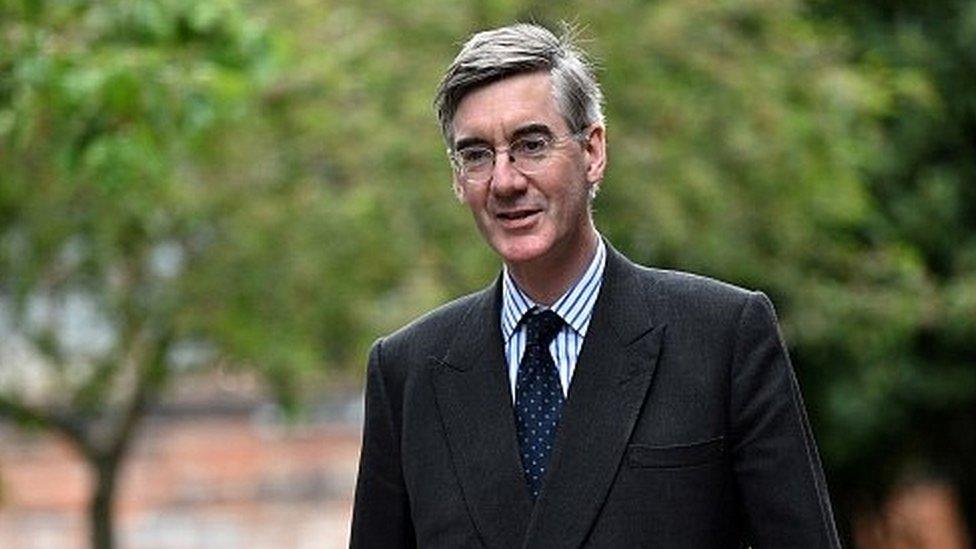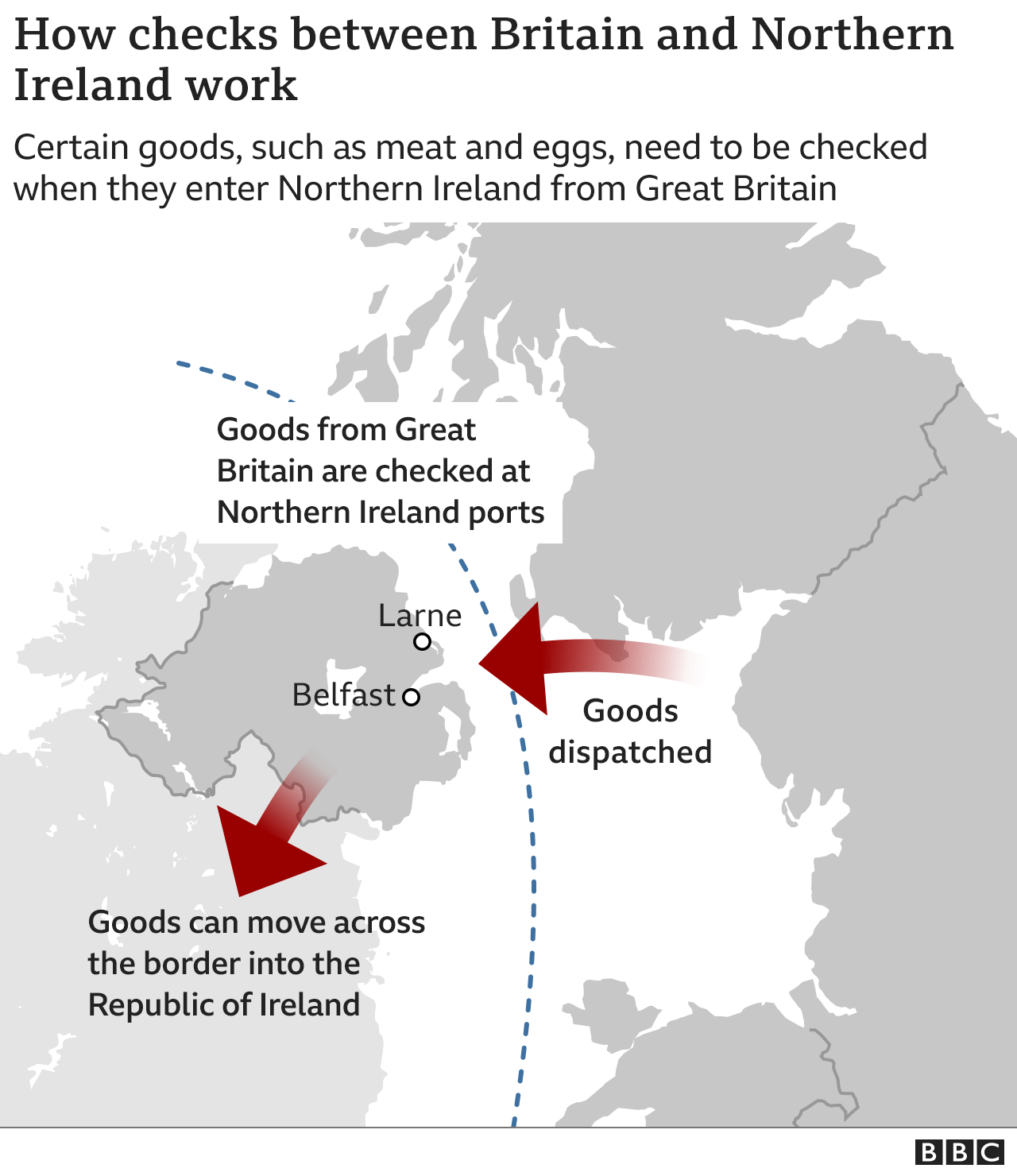UK's Jacob Rees-Mogg attacks EU tactics over NI Protocol
- Published
- comments

Cabinet minister Jacob Rees-Mogg has accused the EU of trying to make the UK "feel bad" to force it to stick to the agreement made to maintain peace in Northern Ireland following Brexit.
The Northern Ireland Protocol keeps the Irish border fully open, but imposes checks on goods moving from Britain to Northern Ireland.
The UK government wants to override parts of the treaty it signed in 2020.
But the EU says this is unlawful and is threatening trade sanctions.
Mr Rees-Mogg told GB News the EU's view on the protocol was of "secondary" importance, and that the UK was entitled to change arrangements.
But the Republic of Ireland government said the UK was "deliberately deciding to breach international law".
In December 2020, the UK and EU both signed up to the protocol.
Designed to preserve peace by avoiding the reintroduction of a hard border in Ireland, it involves customs checks taking place on goods travelling from Great Britain (England, Scotland and Wales) to Northern Ireland.
This is because items may then continue on to the Republic of Ireland, which is still part of the EU.


But the Democratic Unionist Party (DUP), which came second in last week's Northern Ireland Assembly elections, objects to the protocol as it stands, saying it has created a border in the Irish Sea instead and caused Northern Ireland to be treated differently from the rest of the UK.
The DUP is refusing to join a power-sharing government with the nationalist party Sinn Fein, which topped the poll, until the protocol is significantly changed.
And the UK government has threatened to override parts of the document, potentially scrapping checks on goods going from Great Britain to Northern Ireland.
It says it has received advice that such action would be lawful.
But the EU has warned it could retaliate for any unilateral move by introducing trade sanctions.


You'll remember the slogan "Get Brexit done".
Well, here's how they did it: the rather drily titled Northern Ireland Protocol.
Northern Ireland had been a sticking point for ages in delivering Brexit.
Why? Because borders are central to the whole idea of Brexit, because borders are all about having different rules on either side.
But as part of all the efforts taken to maintain peace, the border between Northern Ireland (in the UK) and the Republic of Ireland (in the EU) is open.
The solution? The protocol, agreed to and signed up to by the UK government and the European Union.
Privately, some acknowledge it was a device to solve a short-term issue - delivering Brexit - which created a longer-term one: a border in the Irish Sea, within the UK.
And here we are with the UK government saying it now doesn't like it, and neither does the Democratic Unionist Party, which says it's stopping it going into devolved government alongside a Sinn Féin first minister.
The big question now is whether it's possible to deliver a new arrangement that both the EU and the DUP can endorse. And if the answer is no, what does that mean for devolution in Northern Ireland?

Mr Rees-Mogg, the Brexit opportunities and government efficiency minister, told GB News: "I think [the EU] wants to make the UK feel bad about having left the European Union and that underpins its whole policy and it doesn't really mind about the consequences of that.
"And we just have to get on with life and recognise that we have left.
"We have to make our own way. We are an independent country, and what the EU wants and thinks is secondary."
Mr Rees-Mogg added that the EU would be committing an act of "self-harm" if it imposed sanctions, raising inflation on goods bought by citizens in member states.
He told BBC Breakfast that "the treaty itself provides for its revision and that has not yet successfully concluded".
'Huge mandate'
But Irish foreign minister Simon Coveney told BBC Radio 4's Today programme the UK government was "deliberately deciding to breach international law, which is something that every former prime minister still alive in Britain has warned against".
"Don't forget this treaty was designed and ratified and agreed by the British government under this prime minister," he said.
"He stood for election and got a huge mandate from the British people on the back of that deal and now is blaming the deal for the problems in Northern Ireland."
The EU has proposed a compromise of reducing - rather than scrapping - inspections on goods travelling from Britain to Northern Ireland.
UK Foreign Secretary Liz Truss and European Commission Vice-President Maros Sefcovic on Thursday failed to reach a breakthrough on the protocol.
Their call was described as "tetchy".